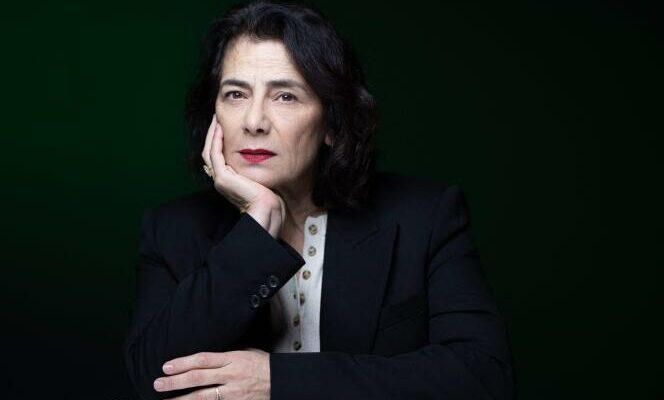Hiam Abbass was born in 1960, in northern Israel, in the village of Deir Hanna where her family had been displaced. The actress who filmed with the Tunisian Raja Amari, the Israeli Eran Riklis or the American Steven Spielberg, is one of the essential pieces of Bye Bye Tiberias, documentary directed by her daughter Lina Soualem, which explores the feminine part of the filmmaker’s genealogy.
What state of mind were you in, Lina Soualem, your daughter, the director of “ Bye Bye Tiberias”, and you, when you undertook this work?
First there was the project of a television producer who wanted to make a series of stories on the Nakba (“the catastrophe”, a term which designates the flight or exile in 1948 of Palestinians living inside borders of Israel). I understood that documentary was not my vocation. At the time, Lina was finishing her Algerian project [Leur Algérie, en 2021, sur ses grands-parents paternels], and she began to question the other side of her family. In the audience, she was asked when she would talk about her Palestinian side. She decided to make a film about the women in my family, about my place in this line of women. She had a fear of tackling this subject. When talking about Palestinian women, we are going to tackle politics. And Lina did not want to play politics, she took time to find the artistic means to trace the journey of these women as women, without necessarily highlighting the conflict. But of course, when you are born into conflict, you cannot escape politics.
Did you pass on the story of these women to your daughters?
Not directly. Normally, children ask their parents questions, but when you are the heir of two exiles, of two histories of colonialism like Palestine and Algeria, the questions are not asked in the same way. Lina wondered how one goes about becoming an artist, as I did, when one is born into this conflict, into this loss. She started by questioning me. Through my answers, she went back in history to get to the source, and the source is the Nakba. This is what situates an identity, I am not Palestinian from Gaza or the West Bank, I am not a refugee, like my aunt who found herself in Syria. I am Palestinian and I was given an identity card which, by force, told me that I was Israeli, well… it’s worse: “Israeli Arab”. Then there was the fact of growing up in a patriarchal society, a woman’s choices must remain acceptable to everyone. Everything artistic was inaccessible to women.
You have 54.65% of this article left to read. The rest is reserved for subscribers.
